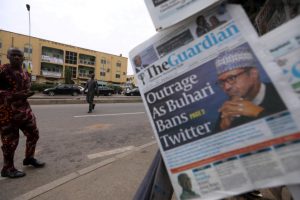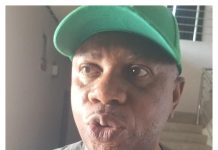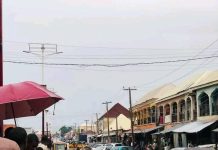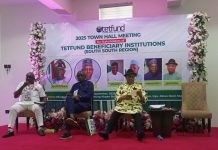Reported by
Abdullahi Adam Muhammad
Africa-Press – Nigeria. The fight between Nigerian government and the popular social media platform, the Twitter, attracts local and international media organizations. Earlier this week, Nigeria has released an announcement that suspended the Twitter in the biggest West African country.
What surprises most people is how the executive arm of the Government and the other governmental departments together made the decision to suspend the podium they give priority over any other means of communication when they want to unveil their missions, policies, programs as well as initiatives. With the Twitter stoppage a lot of damages will happen economically to both parties.
The fight broke when the Twitter decided to erase a tweet by President Muhammadu Buhari alongside his account where he warned the so-called separatists of Biafra of the southeast Nigeria whose activities have, over the months, been a menace to the stability of Nigeria.
Nigeria had severely suffered from the civil war between 1967 to 1970 in which lives and properties of Nigerians were lost, what is being promoted now by the Indigenous People of Biafra IPOB, a group whose aim is to have the State of Biafra from the Federal Republic of Nigeria.
Earlier, Information minister, Lai Muhammed has spoken to newsmen where he accused the Twitter of plotting against the nation, describing it as “suspect”. Justice minister, Abubakar Malami has ordered that whoever violated the prohibition and used the medium shall be arraigned.
Later on, National broadcasting commission NBC whose responsibility is to give or suspend licenses from media organizations, gave a directive that all media organizations in Nigeria must immediately stop using the Twitter.
Nigerian government is suspecting the Twitter of backing any uprising against the government with a view to conspire in order to destabilize the unity of the nation as it allows all tweeting against the administration in the name of ‘Freedom of Expression’ meanwhile, preventing President Muhammadu Buhari from conveying his message.
The biggest opposition party in Nigeria, PDP, without any delay condemned the action, then human right activists followed on. EU, US, UK and Canada criticized the decision calling Nigeria to appreciate the “Freedom of Expression” .
This forced Nigerian minister, Geoffrey Onyeama to call a meeting with the representatives of these Western Countries in which he expressed lamentation over the foreign interference in the matter that concerns the nation and he cited conditions that Twitter shall abide by before lifting the sanction.
it is Habitual

Some are of the view that misapprehension between Twitter and the authorities in Nigeria is a habitual event that will continue to occur. In April 2021 the Twitter decided to move to Ghana where the company has chosen to be its West African headquarter as a result of lack of what they called “lack of freedom of expression in Nigeria” .
The Consequences
Centre for Information Technology and Development CITAD led a press conference where they criticized the decision. CITAD described the banning as a violation against the democracy.
AFRICA PRESS asked CITAD PRO Sabo Ali, whether there will be any loss economically that affect the country as a result of the suspension, Sabo said, “We have so many citizens that are using the Twitter, especially our youth, to do their business to sell whatever they are selling. So by banning Twitter, these youths are going to join the millions of the unemployed youth that are ruining the streets in the country.
The second aspect is that we have service providers, the moment you stop any platform from operating you are indirectly saying that they should stop providing their services to people, because people that are using Twitter are buying data from this network. So when you stop Twitter is like you stop those people from buying data from that network while we know that telecommunication company is one of the biggest sector that is contributing to the country’s economy.
When he was asked why Nigeria doesn’t have another platform that may replace Twitter when the need arises, Mr. Sabo said, “We have many problems in this country; we have many challenges. Our young people who try to innovate a lot of ideas there is no favourable environment for them. Even the government does not support them to create these kind of platforms. We need to sit down and rethink deeply in order to see that we develop our youth. But as for now, we don’t have any platform in this country that will replace the Twitter.”







